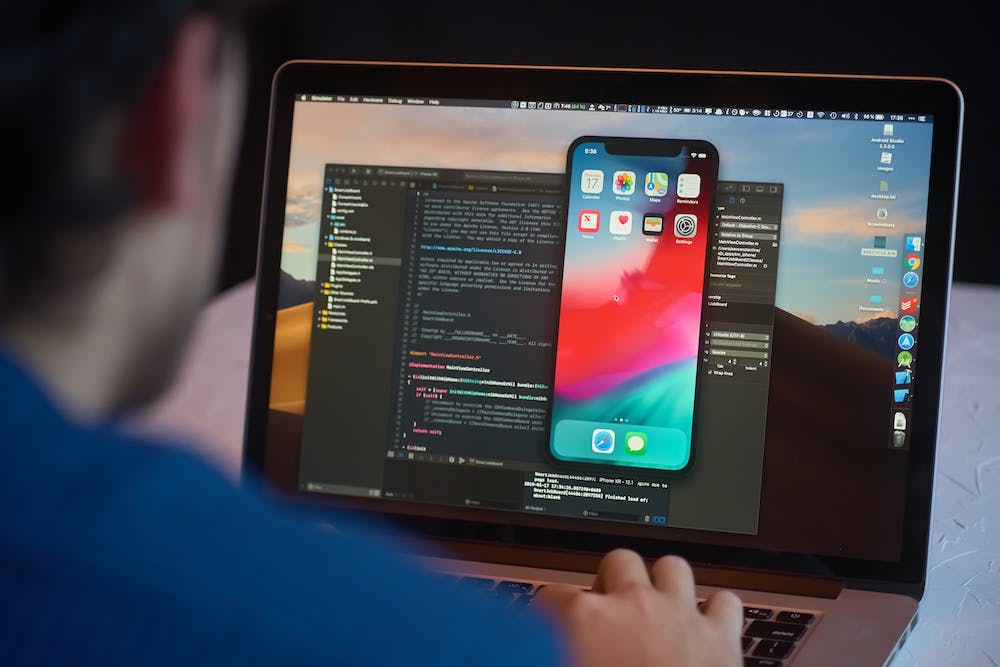Becoming A Mobile Developer 👨💻

Hello Again!
Hello Friend, That's lame, maybe I should give you a name 😕 (I know you'd be like can we skip this part already?) Okay, let's get to it.
For sometimes now I've got people telling about their interests in programming and most especially Mobile Development and how they are confused about getting started or how to get started. And that is why I come up with this article to guide you through your decision-making process by providing you the necessary information as to how to get started, which path to follow, what you need to get started, and other useful information.
🥱 🥱 🥱 Don't worry this one is going to be interesting 😎

Yes, we shall...
Mobile Development, in a Nutshell, means creating software mainly for the mobile platforms e.g Android and IOS
Mobile development refers to creating applications and any other kind of software development specific to mobile devices, including tablets and smartwatches. Mobile development seeks to optimize functionality and user experience on mobile devices, as there are important differences between mobile and desktop UX. _Pluralsight
Choosing a career path in tech can be daunting and also confusing most of the time when you don't have someone to put you through this process and that why we have several blog posts like this one out there to help you make a better decision based on other people's views and experience.
When it comes to the Mobile development path things can also be pretty confusing with so many technologies out there, it's hard to come to a conclusion as regards which one to settle for. Therefore, in this article, I will start by walking you through these technologies, there pros & cons, and the minimum setup required to get working.
Categories Of Mobile Development
Mobile Development can be classified into two basic groups. these are
- Hybrid (cross-platform) mobile development.
- Native (non-cross-platform) mobile development.
What is Hybrid Mobile Development:
Hybrid or Cross-platform mobile development refers to the development of mobile apps that can be used on multiple mobile platforms. These tools are useful because they decrease costs and increase the speed at which apps are developed. The technologies that can be used for this kind of mobile application development are Flutter , React Native , Ionic, Xamarin to name a few.
What is Native Mobile Development:
Native applications are those apps that are developed through their native operating environment. From this explanation, we can already tell what Native Mobile Development is all about. it's about building applications for a specific platform instead of multiple platforms. The technologies or programming languages that can be used for this kind of mobile application development are as follows:
- Android: Java/Kotlin, Android SDK (Android Software Development Kit).
- IOS: Swift/Objective C, IOS SDK (IOS Software Development Kit).
Now Let's Talk About These Technologies We Made Mention Of
I will go over these technologies briefly.
Flutter
Flutter is an open-source UI software development kit created by Google. It is used to develop applications for Android, iOS, Linux, Mac, Windows, Google Fuchsia and the web from a single codebase. The first version of Flutter was known as codename "Sky" and ran on the Android operating system.
React Native
React Native is an open-source mobile application framework created by Facebook, Inc. It is used to develop applications for Android, iOS, Web and UWP by enabling developers to use React along with native platform capabilities. An incomplete port for Qt also exists.
Ionic
Ionic is a complete open-source SDK for hybrid mobile app development created by Max Lynch, Ben Sperry, and Adam Bradley of Drifty Co. in 2013. The original version was released in 2013 and built on top of AngularJS and Apache Cordova.
Xamarin
Xamarin is a Microsoft-owned San Francisco-based software company founded in May 2011 by the engineers that created Mono, Xamarin. Android and Xamarin.iOS, which are cross-platform implementations of the Common Language Infrastructure and Common Language Specifications.
Xamarin is an open-source mobile app platform for .NETdotnet.microsoft.com apps Xamarin. Forms is an open-source mobile UI framework from Microsoft for building iOS, Android, & Windows apps with .NET from a single shared codebase. Whether you want a consistent look across platforms or prefer native look and feel, Xamarin. Forms will get you up and running in no time.
With this brief explanation, you can make more research and then decide on which of these Technologies to settle with.
Here's a parting quote
The secret of getting ahead, is getting started. Good luck out there. 🙂
